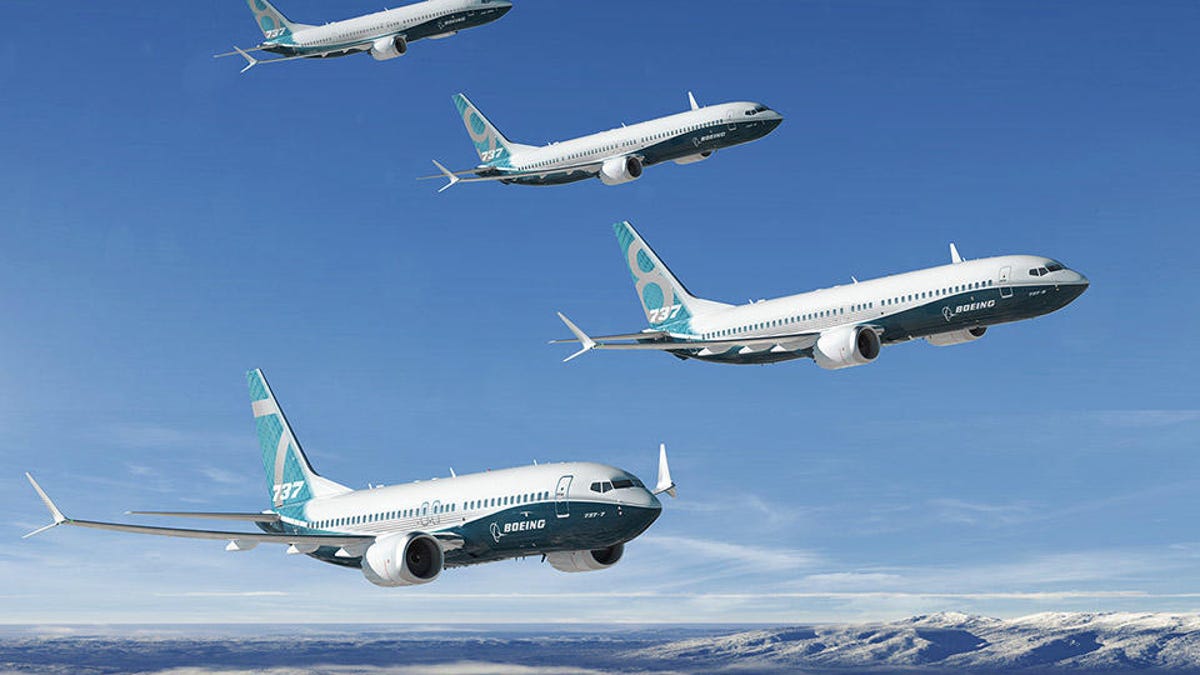Pilots confronted Boeing about 737 Max before second crash
The American Airlines pilots union demanded to know why Boeing didn't inform it about a flight control system that's now under investigation.

The 737 Max consists of four versions, all of which have the MCAS system. The 737 Max 8 was involved in two deadly crashes.
American Airlines pilots sharply questioned a Boeing official over the state of the 737 Max just weeks after the first crash of a Lion Air passenger jet in October.
In a tense recording obtained by CBS News from the Applied Pilots Association that was first reported on by the Dallas Morning News, pilots pressed Boeing on why a flight control system -- under investigation as the cause of the crash -- wasn't disclosed to them when the 737 Max debuted. "We flat out deserve to know what is on our airplanes," one pilot says on the recording. ( CBS is the parent company of both CBS News and CNET.)
The Boeing official responded that knowing about the system wouldn't have changed the outcome of the crash. "In a million miles you're going to maybe fly this airplane, maybe once you're going to see this, ever," he said, while not appearing to know he was being recorded. "So we try not to overload the crews with information that's unnecessary so they actually know the information we believe is important."
The system, called Maneuvering Characteristics Augmentation System, or MCAS, is designed to push the 737 Max's nose down when it detects that it is too high during flight. Investigators in both the Lion Air crash and the later crash of an Ethiopian Airlines 737 Max believe that a faulty sensor was sending incorrect information to the MCAS system, continually forcing the noses of the aircraft into a dive from which pilots were unable to recover.
The official also said Boeing would be fixing the MCAS system with a software update in the following weeks, but the Ethiopian crash occurred and the airliner was grounded before the update could be deployed. As of last month, Boeing says it was finishing test flights to check out the update and was making steady progress on getting the plane in the air again.
In response to the recording, Boeing told CNET that "it is committed to working with pilots, airlines and global regulators to safely return the updated MAX to flight once certified."
In a statement, APA president Capt. Daniel F. Carey said the union will continue to press Boeing for answers. "We owe it to our passengers and the 346 people who lost their lives to do everything we can to prevent another tragedy," the statement said. "Boeing did not treat the 737 Max 8 situation like the emergency it was."
Though the union initially said it was confident in the 737 Max following the Ethiopian crash, the next day it said it supported the grounding. American Airlines has 24 of the 737 Max aircraft in its fleet, with another 76 on order.
Boeing is also drawing scrutiny about alleged negligence at a plant in South Carolina that makes a separate aircraft, the 787 Dreamliner.
Originally published May 14.
Update March 15: Adds link to the Dallas Morning News, APA quote and other information about the union and American Airlines.

